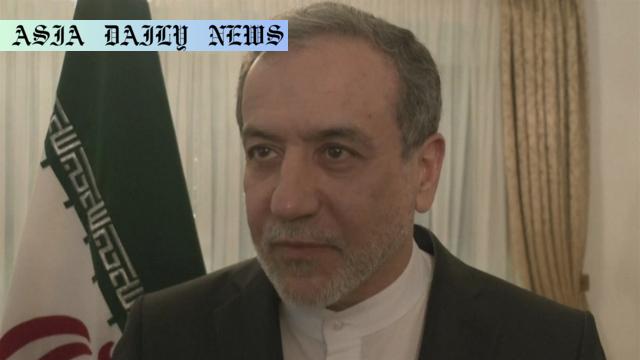Nuclear Talks: Iran demands financial compensation, assurances for safety, and distrust dampens resumption of US negotiations.
- Iran demands financial compensation for resuming nuclear negotiations with the US.
- Distrust deepened following attacks on Iranian nuclear facilities in June.
- New conditions from Iran may pose obstacles to restarting talks.
- Anti-negotiation sentiment within Iran complicates diplomacy.

Introduction: A Renewed Stalemate in US-Iran Relations
Diplomatic engagement between Iran and the United States has hit yet another roadblock. Iran’s Foreign Minister, Abbas Araghchi, has indicated that resumption of nuclear negotiations is contingent upon the US agreeing to provide financial compensation and assurances for safety during talks. This comes after recent escalations, including attacks on Iranian nuclear facilities allegedly coordinated by the United States and Israel. Iran’s move to impose these conditions underlines the strained relations and the fragile state of diplomacy between the two nations.
The Genesis of Distrust: Historical and Recent Conflicts
Distrust between Iran and the United States is far from new. Over decades of geopolitical tension, punctuated by mutual sanctions and nuclear accusations, the two nations have struggled to find common ground. The June attack on Iranian nuclear facilities adds another layer of mistrust. Iran argues these attacks, carried out during ongoing negotiations, signal a lack of US commitment to fair diplomacy. Araghchi noted in a Financial Times interview that these events have deepened anti-negotiation sentiment in Iran, with the public expressing skepticism and caution over dealing with the US. Such sentiments have made it politically difficult for Iranian officials to pursue talks without significant concessions from the United States.
Iran’s Demands: Compensation and Assurances
The main pillars of Iran’s conditions for restarting talks involve financial compensation from the United States and formal commitments to avoid further sabotage during the negotiation process. Araghchi’s statement highlighted key concerns over trust and fears of being deceived again. These demands come despite US insistence that Iran must first curb uranium enrichment activities as a prerequisite for progress. Observers warn that this deadlock is creating a precarious stalemate, with both sides unwilling to make the first move. Crippling sanctions, coupled with economic struggles inside Iran, have amplified the urgency for a resolution, yet mutual distrust persists.
Challenges Ahead: The Global and Regional Impact
The implications of this stalemate extend beyond US-Iran relations. Tensions surrounding Iran’s nuclear ambitions often act as a catalyst for broader instability in the Middle East. Regional actors like Israel have demonstrated zero tolerance for an empowered Iranian nuclear program, while other nations call for de-escalation. Economically, Iran continues to suffer under severe international sanctions, compounding internal unrest. Global observers note that without a pragmatic and trust-building framework, these negotiations are unlikely to yield sustainable results. The potential for new diplomatic strategies, or a hardline stand-off, hangs in the balance.
Conclusion: Room for Pragmatism and Hope
Despite the mounting complications, there remains a possibility for progress if both parties adopt pragmatic approaches. Iran’s calls for compensation and guarantees, although difficult to negotiate, represent an avenue for dialogue. Likewise, the US, which seeks to limit Iranian uranium enrichment, must consider measures that ensure mutual respect and security assurances. With rising global attention on the issue, diplomatic intermediaries may play a crucial role in reigniting talks. The coming months will likely test the resolve and creativity of the international community in addressing this entrenched geopolitical challenge.



Commentary
Understanding the Context of Iran’s Demands
Iran’s latest demands for compensation and assurances highlight a deep-seated mistrust that has long defined its relationship with the United States. The request for financial compensation might seem controversial, but it underscores how prior incidents, such as the alleged sabotage of nuclear facilities, have eroded Tehran’s confidence in the negotiation process. Iran’s leadership is responding not only to external pressure but also to internal public opinion, which heavily influences its diplomatic strategies. This demand could be seen as an attempt by Iranian officials to demonstrate a strong stance on sovereignty and fairness, albeit at the risk of further impeding negotiations.
Challenges for American Diplomacy and Global Stakeholders
From the perspective of the United States, Iran’s conditions may appear unreasonable, especially given the urgency to halt uranium enrichment. However, the broader dynamics require consideration of both parties’ security concerns. The international community also has a stake in the outcome, as unresolved nuclear tensions could escalate regional conflicts. Nations with vested interests, including those in Europe and the Middle East, should consider fostering a platform for rebuilding trust rather than perpetuating hostilities. While Iran’s conditions may make immediate progress unlikely, they provide an opportunity for critical reflection on the nature and objectives of negotiations.
The Path Forward: Can Diplomacy Prevail?
Moving forward, both Iran and the US must weigh the potential costs of diplomatic failure. For Iran, continued sanctions threaten its economy and social stability. For the US, unresolved tensions may escalate into broader conflicts, undermining its strategic goals in the Middle East. Pragmatic diplomacy that acknowledges shared concerns without compromising fundamental principles is the need of the hour. Initiatives that incorporate international mediators or guarantees may help bridge the divide and lay the groundwork for progress. Ultimately, the success of negotiations depends on the willingness of both sides to navigate the delicate balance of trust, compromise, and accountability.